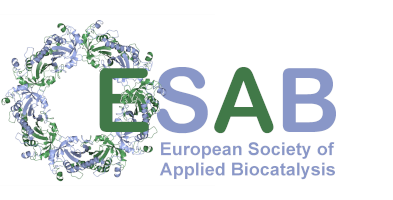Enhancing Efficiency in Multi-Enzyme Cascades through Data-Driven Optimization Strategies
Abstract
The combination of several enzymes in multi-step reaction cascades enables the synthesis of complex molecules with often shorter reaction pathways compared to chemical routes, thus supporting the development of ecologically sustainable processes. Multi-enzyme reactions have even more advantages such as the shift of the equilibrium towards the product side, no intermediate isolation, and the synthesis of complex molecules in one reaction pot. Recently, several cascades have been developed that led to efficient synthetic pathways that could be of great relevance for the synthesis of anti-viral and anti-cancer compounds. However, more complex cascades are often limited in their yield and titers, so that a huge optimization effort has to be made in order to find reaction conditions that allow economically viable performance to be obtained. The optimization of an enzyme cascade means that cooperative effects between several design parameters must be taken into account, which involves a high experimental effort. One way to overcome the challenge of optimizing such multi-parameter systems is to combine in silico models with experimental design, model calibration and validation. We have therefore investigated computational methods to increase the efficiency
of this optimization process.
About the Speaker(s)
 Katrin Rosenthal is Assistant Professor of Biotechnology with focus on Bioprocess Engineering at Constructor University in Bremen, Germany. She earned her PhD (2016) from the TU Dortmund University at the Chair of Chemical Biotechnology specializing on the development of single-cell analysis and the development of a microfluidic system for the cultivation and analysis of isolated bacterial cells. From 2016, she worked as a PostDoc in the field of biocatalysis and bioprocess development at the Chair of Bioprocess Engineering at TU Dortmund University. From 2018 to 2022, she has been a group leader focusing on biotransformations and microbioreaction engineering. Since 2023, she is professor at Constructor University and is focusing with her group on biocatalyst screening, cell-free protein synthesis, biotransformations and enzymatically catalyzed reaction cascades, as well as on the development of microbioreactors for biocatalyst characterization and reaction optimization. She tries to combine computational tools with wet-lab experiments in all areas in order to improve the performance of biocatalytic reactions as efficiently as possible.
Katrin Rosenthal is Assistant Professor of Biotechnology with focus on Bioprocess Engineering at Constructor University in Bremen, Germany. She earned her PhD (2016) from the TU Dortmund University at the Chair of Chemical Biotechnology specializing on the development of single-cell analysis and the development of a microfluidic system for the cultivation and analysis of isolated bacterial cells. From 2016, she worked as a PostDoc in the field of biocatalysis and bioprocess development at the Chair of Bioprocess Engineering at TU Dortmund University. From 2018 to 2022, she has been a group leader focusing on biotransformations and microbioreaction engineering. Since 2023, she is professor at Constructor University and is focusing with her group on biocatalyst screening, cell-free protein synthesis, biotransformations and enzymatically catalyzed reaction cascades, as well as on the development of microbioreactors for biocatalyst characterization and reaction optimization. She tries to combine computational tools with wet-lab experiments in all areas in order to improve the performance of biocatalytic reactions as efficiently as possible.
